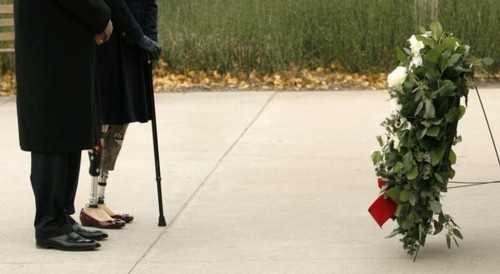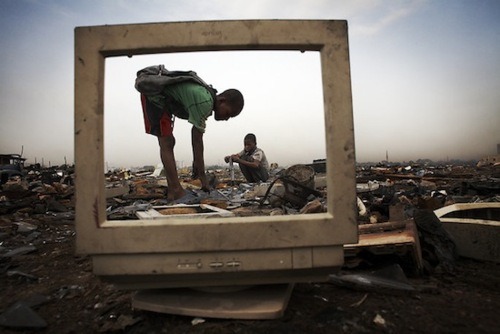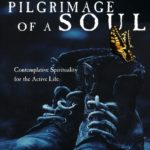A’Part:: Reflections on Violence, Over-consumption and Environmentalism
I’ve been enchanted all year by the lyrics—almost a dirge—of a song called A’Part, by Elephant Revival, an indie acoustic quintet from Colorado. The last few lines are
…you are a part of me
a part of you is all you hurt
you see
Then I came across Richard Rohr’s reflection in The Naked Now on the US response to 9-11.
We actually operated against our own self-interest, but the mind not open to change cannot see that. It is too trapped inside of polarity thinking. It is so eager to shoot at something that it shoots itself in the foot and does not even realize it. (p. 94)

Violence is not the answer. It only breeds more violence and makes more enemies and in the end leaves us crouching in fear, constantly looking over our shoulder.
Sadly, we don’t really have the eyes to recognize our violent choices and behaviors. We cloak them in nationalism or pride or even benevolence. As Rohr suggests in the spirit of St. Paul, we need a spiritual revolution—our illusions exposed and minds renewed (Ephesians 4:20-24). When we succumb to this most awful and wonderful spiritual take-over, nondual or contemplative consciousness is born. We recognize that “…you are a part of me, a part of you is all you hurt, you see…”
When we are stuck in dual consciousness, it’s too easy to name an enemy on which we impose all of our dysfunction and aggression, blind to the ways in which our violence hurts ourselves.
At the micro-level we do this regularly in relationship with our parent, partner, friend or boss. If I don’t get my way—and I am most certainly right—then the other is wrong, my enemy, and is to be punished at best and at the worse response, eliminated. We are then left isolated and defensive—far from freedom. We experience this in families, churches, companies, politics and international relations.
But can we dream of another way? The way that Jesus hints at by challenging us to love our enemies and pray for those who persecute us? If someone hits us on one side of the cheek, turn to him the other. If they steal our coat, give him our clothes too. Seriously Jesus? The dualistic mind cannot understand the value of such teaching.
Living like that requires a different way of perceiving. Instead of me being at the center, I see myself as part of a whole. It’s not me versus the world, but us together, one human family, longing for the same things—peace, love, equality, acceptance. To hurt you or retaliate against you will lead ultimately to my own unhappiness—because I am a part of you, you are a part of me. Suddenly all of our actions come under the scrutiny of unity. And it becomes not only difficult to name an enemy, but difficult to over-consume and participate in a global economy without recognition for all members of that economy—especially the ones at the bottom or on the margins—the very foundation of our luxurious existence.

The same is true for how we treat the earth. Our environment is not our enemy—something to be dominated, exploited and overconsumed. It’s our life-force. We are dependent on water, air, land, plants and animals. We cannot exist without these gifts, much like our relationships with each other. It is not about competition, but cooperation. We need each other. The best, most fulfilling relationships recognize that and honor and respect that reality in each other.
If we were to see land, air, water, plant and animal life as personifications that we are in relationship with—a symbiotic relationship—our choices and behaviors would look very different. Our Native American brothers and sisters understood this instinctively—often referring to animals as brothers, and offering gratitude and paying respect to the dying creature during a hunt. And St. Francis of Assisi’s Canticle of Brother Sun and Sister Moon, written in the 11th century expresses this most profoundly.
…
Be praised, my Lord, through all your creatures,
especially through my lord Brother Sun,
who brings the day; and you give light through him.
And he is beautiful and radiant in all his splendor!
Of you, Most High, he bears the likeness.
Be praised, my Lord, through Sister Moon and the stars;
in the heavens you have made them bright, precious and beautiful.
Be praised, my Lord, through Brothers Wind and Air,
and clouds and storms, and all the weather,
through which you give your creatures sustenance.
Be praised, My Lord, through Sister Water;
she is very useful, and humble, and precious, and pure.
Be praised, my Lord, through Brother Fire,
through whom you brighten the night.
He is beautiful and cheerful, and powerful and strong…

When will we catch on?
Whether relating to each other or nations or the earth that we inhabit, until we adopt a contemplative stance in the world, we will go on fighting, raping, plundering and exploiting, ultimately destroying ourselves.
A contemplative posture is what makes Jesus’ message about dying-to-self possible. All the great religions recognize the need to discipline the human mind and body to be receptive to the presence of God, the life energy that sustains us all. Left to our own impulses, we make a mess of things. But through the rich contemplative traditions of the church, we tap into the river of life that changes everything—beginning with us—from the inside-out. And the leaves of the trees that are meant for the healing of nations really come about (Ezekial 47:12, Revelation 22:2).
image 1 is from www.dailymail.co.uk
image 2 is from www.myweku.com
image 3 is from www.yang-sheng.com



